III. Joining hands in alleviating the consequences of Agent Orange – Initial outcomes
Effort made by the Communist Party and State of Vietnam
Fully aware of the severe consequences of Agent Orange/Dioxin sprayed by the U.S Military to the environment and people’s health in Vietnam, right after the end of war, despite the hardships of the country, the Communist Party and State of Vietnam have implemented a number of guidelines and policies for alleviating the consequences of toxic chemicals and supporting the victims.
On 15th October 1980, the then Chairman of the Council of Ministers (now the Prime Minister) issued the Decision No. 288-TTg on the establishment of the National Committee on surveying the consequences of the chemical warfare conducted by the U.S in Vietnam. Subsequently, on 5th July 2002, the Politburo issued the Notification No. 69-TB/TW on the settlement of consequences of Agent Orange/Dioxin, specifying that: settling the consequences of Agent Orange/Dioxin is a long term task, but also an urgent issue at present. It is necessary to have drastic leadership and measures for doing the work more effectively. In the short run, it is necessary to have appropriate mechanisms, policies and fund for the support, care and treatment of the victims. At the same time, strengthening the mobilisation of some countries, international organisations, non-governmental organisations, etc. for the support of the victims. On 5th July 2004, the Prime Minister issued the Decision No. 120/2004/QĐ-TTg on “Some regimes for war veterans and their offspring affected by toxic chemicals used by the U.S in Vietnam War”.
Especially, on 10th January 2004, Vietnam Association for Victims of Agent Orange/Dioxin (VAVA) was established in accordance with the Decision No. 84/2003/QĐ-BNV dated 17th December 2003 of the Ministry of Home Affairs. This was such an important progress, representing the deep concern of our Party and State for the settlement of toxic chemicals used by the U.S Military in Vietnam War. VAVA’s main tasks include: mobilising resources for caring and supporting the victims and struggling to protect the rights and justice for the victims. Upon its inception, VAVA drafted the Project “Assisting the victims of Agent Orange in life” and started to “collect files and evidences for suing the U.S companies for their production of Agent Orange used by the U.S Military in Vietnam War”.
On 14th May 2015, the Secretariat issued the Directive No. 43-CT/TW on “Strengthening the Party’s leadership over the settlement of the consequences of Agent Orange used by the U.S in Vietnam War”. This directive was of special importance to the support of the victims and the development of VAVA at different levels. Since the directive came into life, there have been much progress in the implementation of the regimes and policies for the Dioxin-affected war veterans and their offspring; due attention has been paid by party committees and authorities at all levels to the construction and development of VAVA and the enhancement of its operations. To date, VAVA has established its affiliates in 63/63 of the provinces and municipalities; 615 districts, towns and cities; 6,539 communes and wards country-wide with nearly 400,000 members. VAVA has also founded 26 centres for alimentation, rehabilitation and decontamination for the victims at central and local levels. VAVA and its affiliates have increasingly promoted their roles as a bridge for organisations, individuals, philanthropists, businesses to support for the victims. They have been assigned (by the State and the people) the responsibility for nourishing, supporting and representing the rights of more than 3 million victims of Agent Orange.
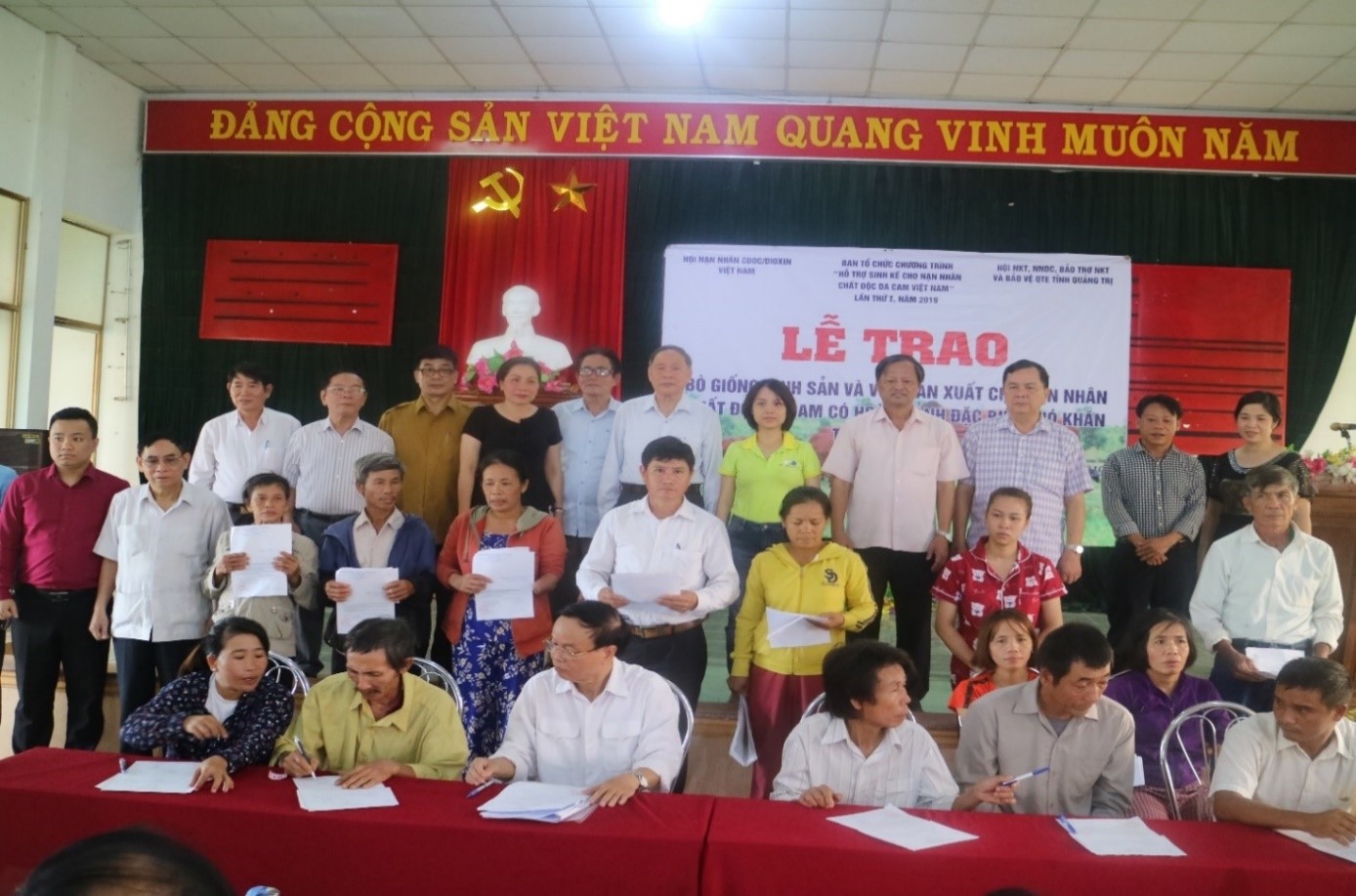
Contribution of the public in the alleviation the consequences of Agent Orange
With strong determination of the entire Party, people and troops, and the support of foreign countries, international organisations, we have strengthened the alleviation of the consequences of Agent Orange after war and assistance for the victims. Together with the state budget, VAVA and its affiliates have fostered the socialisation of resources from organisations, individuals, philanthropists both at home and abroad. Particularly, the movement of “Acting for Vietnam’s victims of Agent Orange” launched by the Vietnam Fatherland Front has been promoted and positively responded by both domestic and foreign communities. From 2004 to 2009, the levels of the Association have raised over 2,045 billion dong for the work in which domestic resources contributed 1,925 billion dong and the rest was donated by external ones. In the 5 year period from 2013 to 2018, with donation mobilised, VAVA and its affiliates built 1,972 houses of gratitude, granted 3,958 scholarships, and provided assistance in capital, employment, healthcare, and gifts on holidays and special occasions for thousands of victims of Agent Orange.
Many organisations and businesses have been very active in accompanying with VAVA in this work over the past years. Some of them have donated tens of billions for supporting and assisting the victims, such as: The Ministry of National Defence, the Japanese Embassy in Vietnam, the Military Industry and Telecommunications Group (Viettel), the Military Bank (MB), Vietnam Oil and Gas Group (PetroVietnam), Vietnam Post and Telecommunications Group (VNPT), An Hung Tuong Steel Company Limited, Mr. Nguyen Van Thieu of the Nguyen Thieu Pharmacy Company, Mr. Nguyen Nhu Y – Director of the Synot Asean Joint Stock Company, Mr. Le Van Kiem - Chairman of the Board of Directors of the Long Thanh Golf Investment and Trading Joint Stock Company, Ms. Maggie Brooks (Costa Rica), Ms. Masako Sakata (Japan), to name but a few.
Some Dioxin-affected veterans, with their strong will and determination, don’t give up to challenges in life. They have overcome the hardships and succeeded in economic production to prosper in their own land and become the role models for economic development. Many of them are business owners. They not only get rich for themselves but also help creating jobs for others. Some of the typical examples are: Mr. Nguyen Luu Doan in Ea Dar Commune, Ea Kar District, Dak Lak Province who was affected by Agent Orange together with his two children. Not surrendering the circumstance, he and his wife strived ceaselessly in economic production and earn 500 million in interest each year. Mr. Luu Tri Hai in Lac Vien Ward, Ngo Quyen District, Hai Phong has three children affected by Agent Orange. Despite his poor health, he still runs a mechanic factory to develop his economy. Mr. Duong Cao Khoa in Hamlet 2, Quang Thanh Commune, Hai Ha District, Quang Ninh Province has 4 children contaminated by Dioxin but still overcome his hardships to become a role model in economic production with annual income of hundreds of millions dong. Mrs. Tran Thi Kim Lien in Hai Rieng Town, Song Hinh District, Phu Yen Province is a war invalid and a victim of Agent Orange. Getting a loan of 10 million dong from VAVA and 30 million dong from the local women’s association, she invested in raising cows. By this way, her family has escaped from poverty with annual income of nearly 80 million dong. Mr. Le Ngoc Dinh born in 1952 in Thanh Dinh Commune, Viet Tri City, Phu Tho Province joined the army in 1970 and is a 4/4-level war invalid and a victim of Agent Orange. He also has one child contaminated by Agent Orange. With his will and withstanding the poverty, he decided study experience and plant fruit trees, thereby becoming a role model in economic production, etc.
Strengthening propagation and enhancing the effectiveness of resource mobilisation, and nourishing and supporting the victims of Agent Orange
War has ended for over 40 years but the consequences caused by toxic chemicals still persist and loom large. Our Party and State, organisations, unions and people both at home and abroad have shown much sympathy and support for the victims. However, at present, the victims still face much hardship in life. Therefore, it is necessary to strengthen propagation about severe consequences of the Agent Orange caused by the U.S in Vietnam War; the pain, hardship and misery that the victims are suffering. They are badly in need of the sharing, support and assistance from the community. Continue to accelerate the Movement of “Acting for the victims of Agent Orange” and thoroughly conduct the campaigns mobilising the donation for the victims on the 10th of August (Day for Vietnam’s victims of Agent Orange), Tet, holidays and other special occasions, etc. Thereby, raising the awareness, sense of responsibility of the community and the society; arousing the spirit of solidarity, the tradition of “When drink water, remember its source” and “Love other people as yourself” of Vietnamese people. All levels of VAVA should coordinate with press agencies to propagandise about the activities of the Association; praise the philanthropists, the exemplary victims in overcoming the difficulties, and the dedicated cadres of the Association, etc. Together with propagation on mass media, it is necessary to promote other forms of propagation, such as: images, objects, motto, open letter, books and other publications.
Another important thing is that party committees and authorities of localities should grasp and concretized the viewpoints and guidelines of the Party specified in the Directive No. 43-CT/TW. Functional agencies should further study, supplement and perfect the system of legal documents relating to regimes and policies for the victims of Agent Orange; soon study and promulgate the regimes and policies for the third-generation victims in accordance with the Directive No. 14-CT/TW dated 19th July 2017 of the Secretariat on “Strengthening the Party’s leadership on repaying the revolutionary contributors”; gradually improve living standards of the victims and help them stabilise their lives and integrate with the community, “not to let anyone behind”.
Party committees and authorities at all levels should also pay attention to building VAVA and its affiliates strong and offer favourable conditions for them to fulfill their tasks. In their turn, VAVA and its affiliates should uphold their responsibilities, actively renew their contents and methods of operation; be creative and flexible in mobilising the resources from international organisations, domestic and foreign philanthropists. In addition, it is necessary to promote the synergy of the entire political system, overseas Vietnamese, international organisations, and scientists in mobilising and struggling for justice for Vietnam’s victims of Agent Orange.







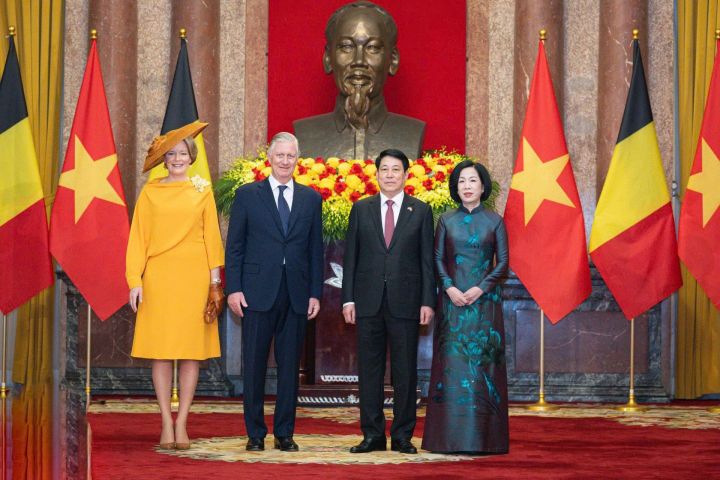
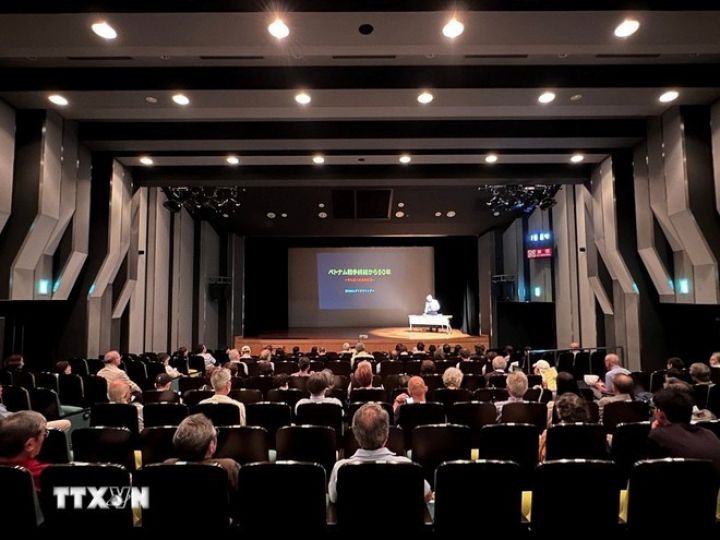

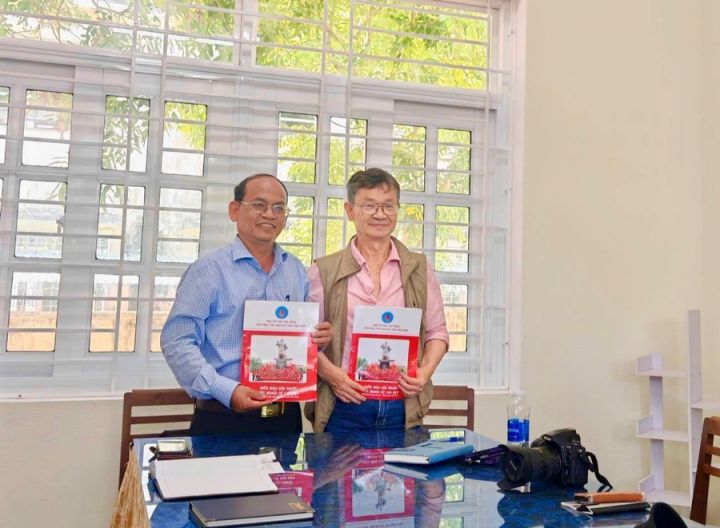
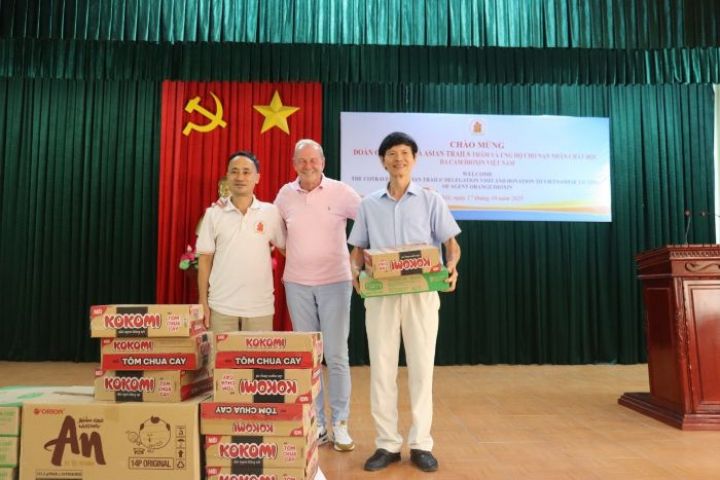
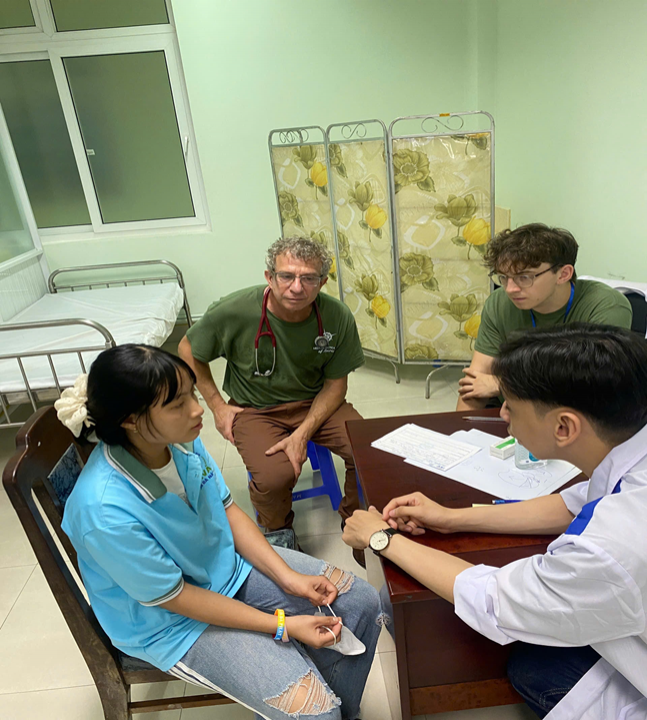










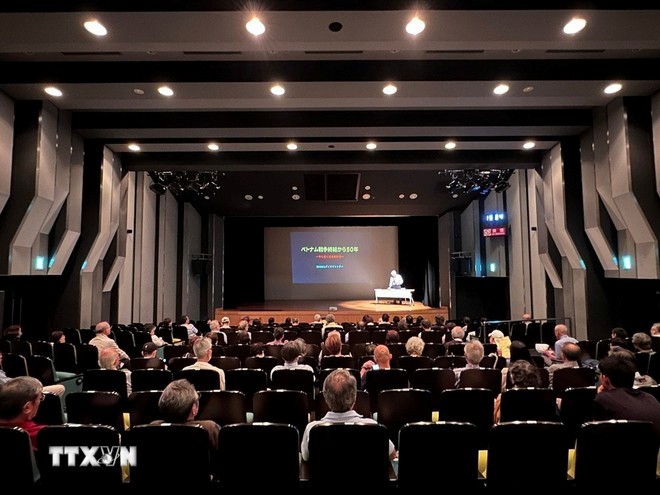
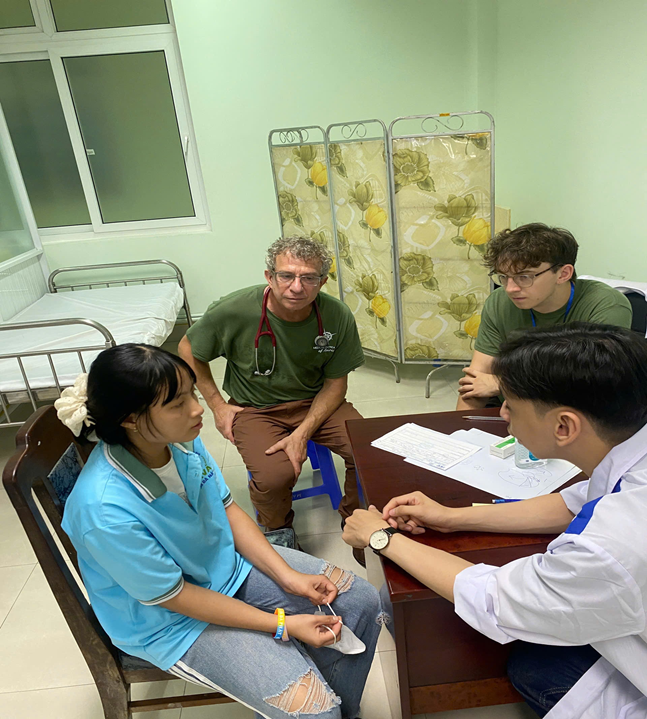
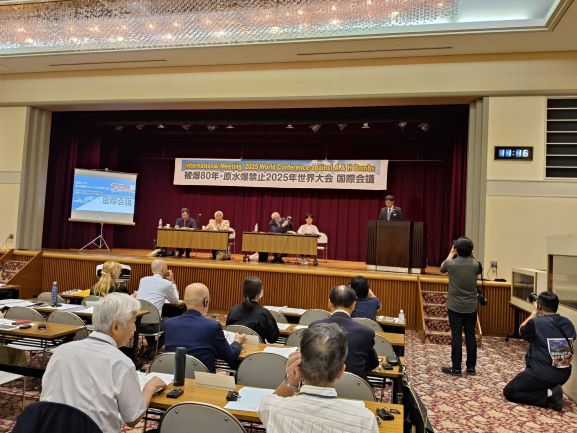
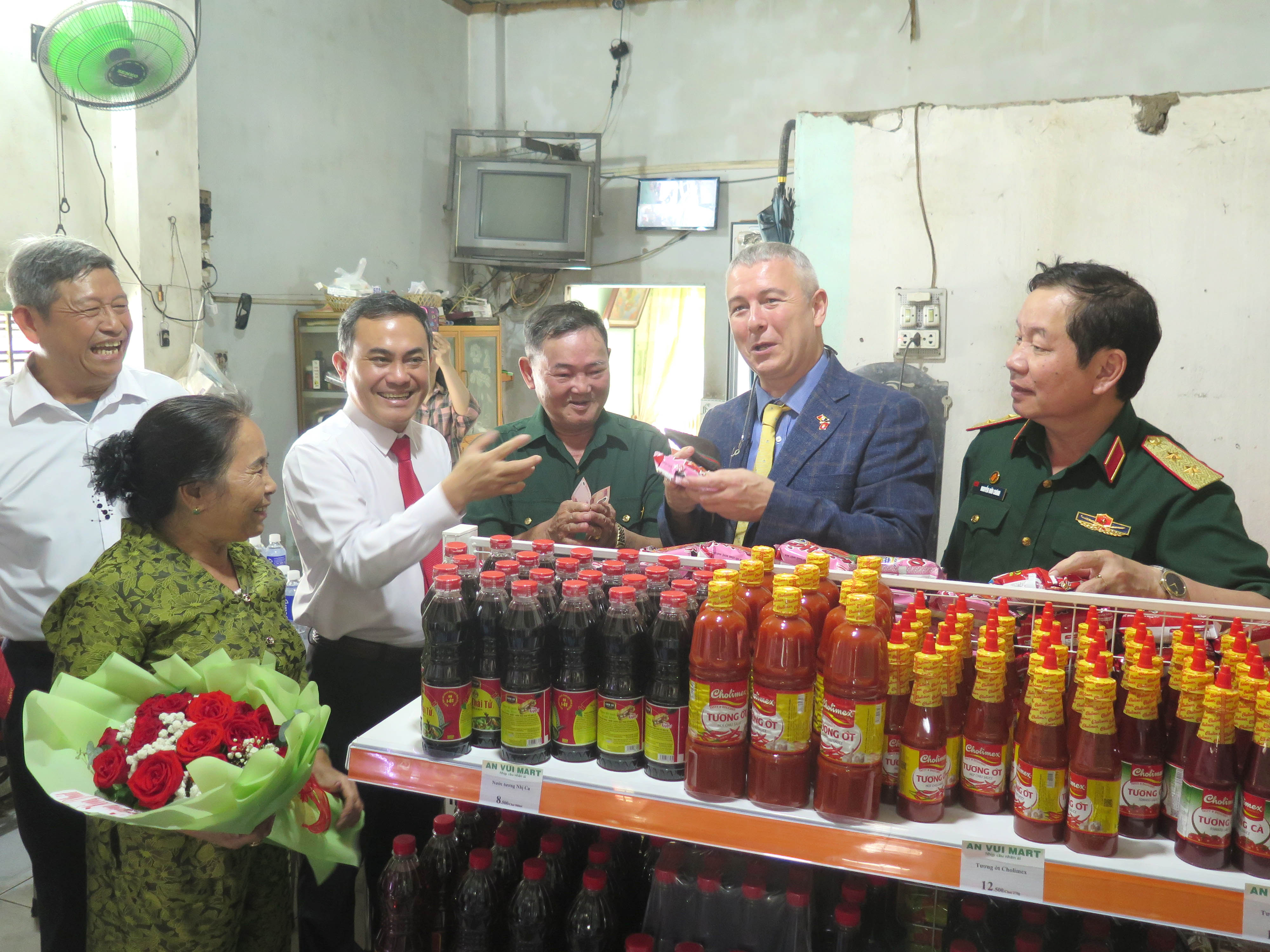
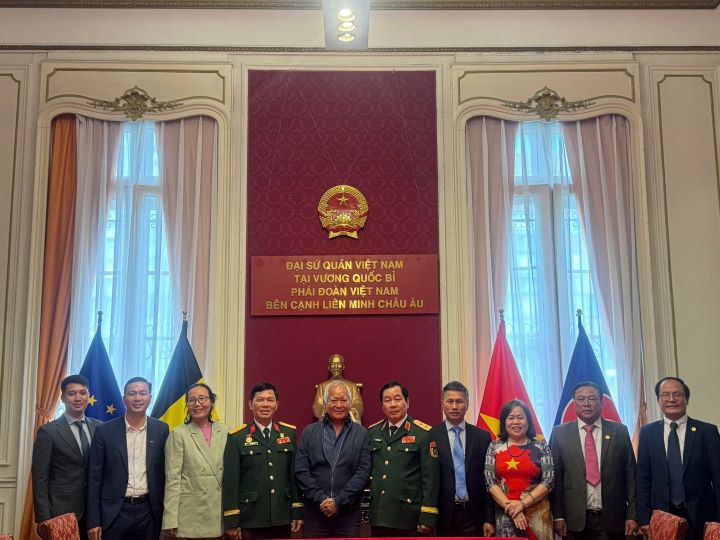
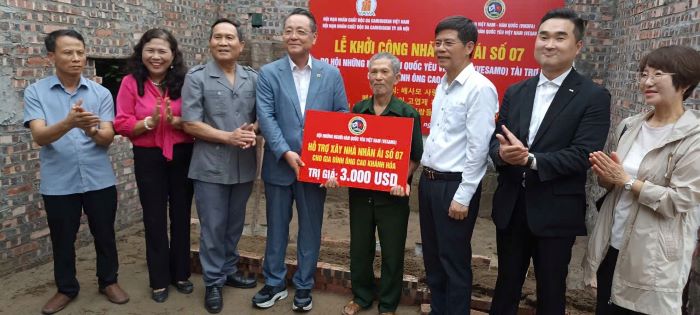


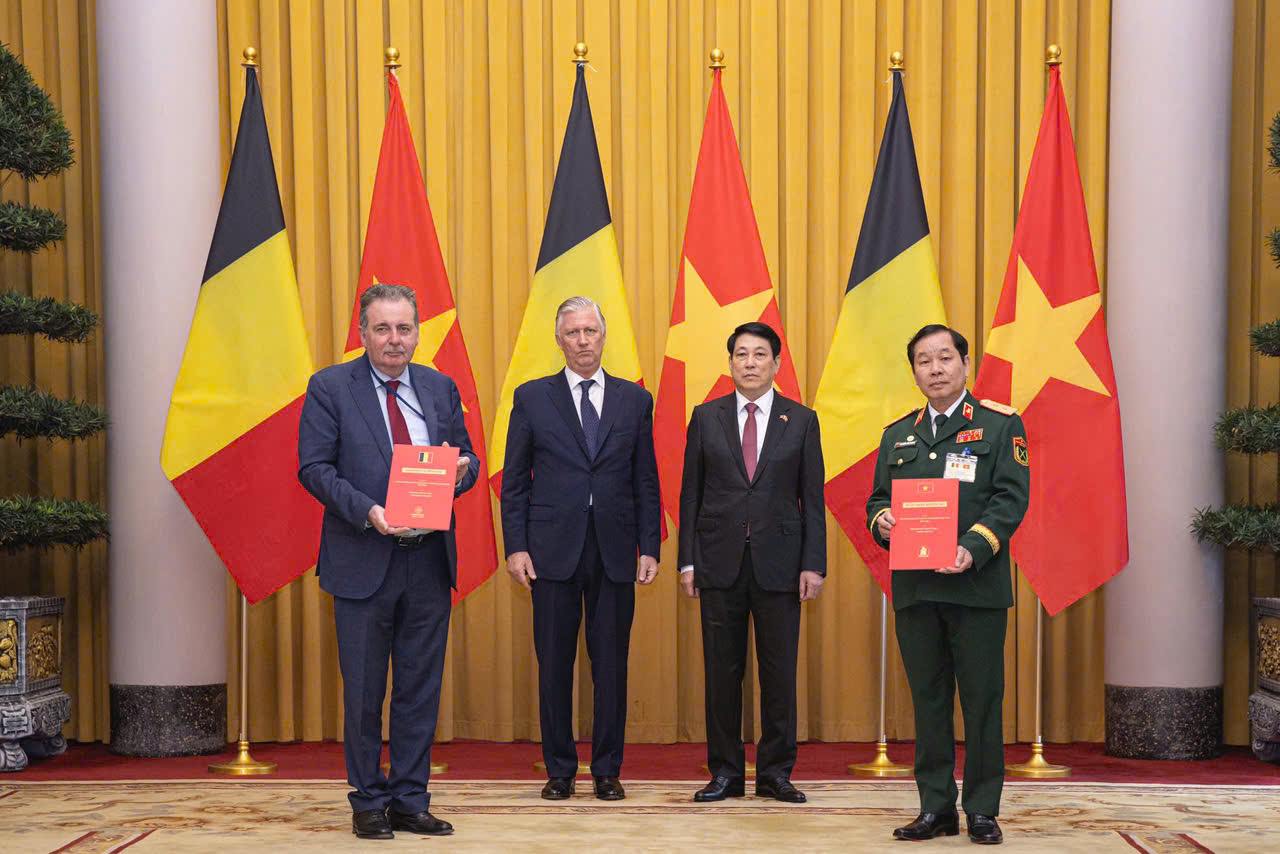

Comment